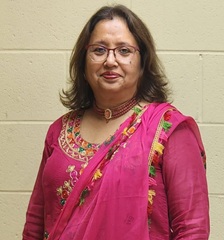Rinku Majumder, PhD
rmujum@lsuhsc.edu
Professor of Interdisciplinary Oncology,
Adjunct Professor of Biochemistry and Molecular Biology
Adjunct Professor of Genetics
Lab mission
To study the natural anticoagulant, Protein S and its diverse roles in thrombosis, hemostasis, inflammation and mitigating pancreatic cancer
Our lab was the first to discover a novel function of Protein S, direct inhibition of activated Factor IX.
Research Areas
- Development of new and effective therapeutics for thrombotic diseases and hemophilia
- Identification of amino acid residues involved in direct inhibition of activated Factor IX and Protein S
- Hormone mediated thrombosis in obese women
- Overexpression of Protein S and downregulation of Gas6 in pancreatic cancer cells
- Interaction between Protein S and TAM receptors and their downstream signaling
- Adjunct therapy for Hemophilia B in the form aptamers and antibodies of Protein S
Lab Manager
Vandana (acting)
Lab Team
Rinku Majumder, PhD
Principal Investigator
Dr. Majumder investigated numerous questions regarding the regulation of blood clotting and diseases arising from deficiencies of various clotting factors and in regulation of their activities. Notably, she was a key contributor to the work that overturned the prevailing paradigm regarding the role of platelet membranes in regulating thrombin generation. Currently, Dr. Majumder's research focuses on the development of new and more effective therapeutics for thrombotic diseases and hemophilia.
Mohammad Mohammad, PhD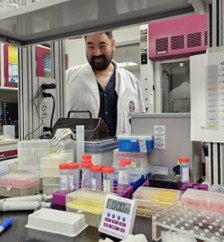
Postdoctoral Fellow
Dr. Mohammad is a Saudi Arabian who’s currently working as a postdoctoral fellow in the Department of Interdisciplinary Oncology at LSUHSC. He completed his PhD from University of Hull, UK. His research interests lie primarily in the area of blood coagulation and cancer.
His research focuses on how estrogen and hypoxia-associated obesity enhance thrombotic risk by suppressing PS. Dr. Mohammad is also involved in investigating the role of Protein S in pancreatic cancer as a possible therapeutic target.
Narendar Kumar, PhD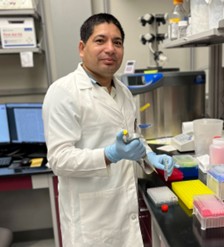
Postdoctoral Fellow
Dr. Narender Kumar is from India and currently working as a postdoctoral fellow in the department of Interdisciplinary Oncology at LSUHSC. He completed his PhD from IMTECH Chandigarh, India in the field of protein Biochemistry and Molecular Biology. His research interest is mainly in blood coagulation biology.
Currently his research focuses on the unexplored role of Protein S specially focus on clot retraction, obesity and hypoxia. He is also involved in the development of new mouse lines and new mouse models to study the role of PS in vivo.
Rafika Yasmin, PhD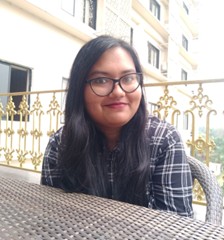
Postdoctoral Fellow
Dr. Rafika Yasmin is a postdoctoral fellow in the Department of Interdisciplinary Oncology at LSUHSC. She is from the beautiful land of Assam, India. She got her PhD from Tezpur University, India where she worked on anti-platelet proteins from Daboia russelii venom. Her area of interest lies primarily in proteins that modulate the blood coagulation cascade.
Currently, her research focuses on unraveling the molecular interactions between Protein S and Factor IXa at the amino acid level, with the goal of developing innovative adjunct therapies for Hemophilia B using Protein S–targeted aptamers.
Vandana, PhD 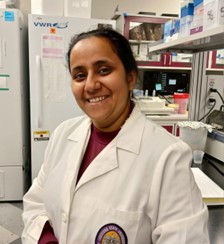
Postdoctoral Fellow
Dr. Vandana is from Punjab, India. She is currently working as a postdoctoral fellow in the department of Interdisciplinary Oncology at LSUHSC. She completed her PhD from Banasthali Vidyapith, India in the field of protein Biochemistry and Molecular Biology. Her research interest is mainly in blood coagulation biology.
Currently, her research aims to uncover the detailed molecular interactions between Protein S and Factor IXa at the amino acid level. She is also involved in maintaining the mouse lines.
Teagan Prouse
MD/PhD Student
Teagan Prouse received her BS Biochemistry from University of Northern Iowa. She is currently an MD/PhD student at Louisiana State University Health Sciences Center. Her research focuses on investigating the role of Protein S in pancreatic cancer.
She is currently investigating how Protein S levels change in the plasma of PDAC patients and conducting an in-silico analysis of how Protein S impacts PDAC progression and tumor grade.

